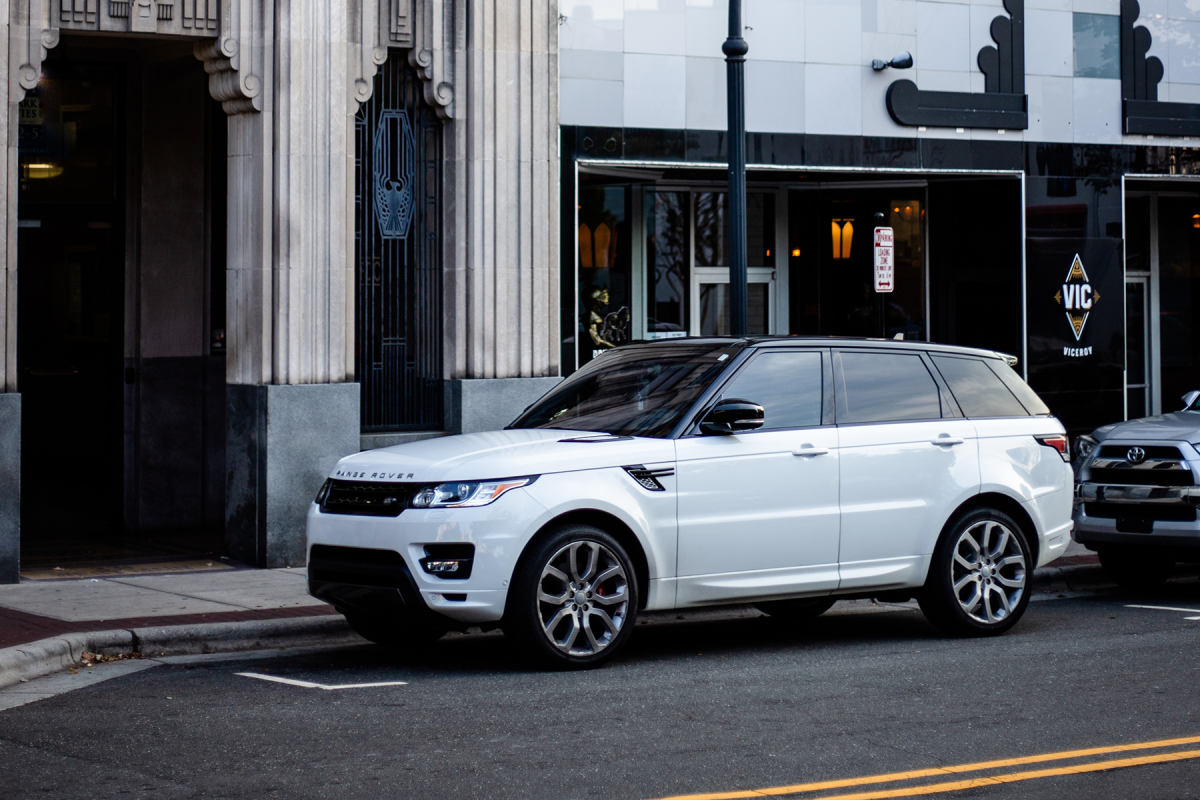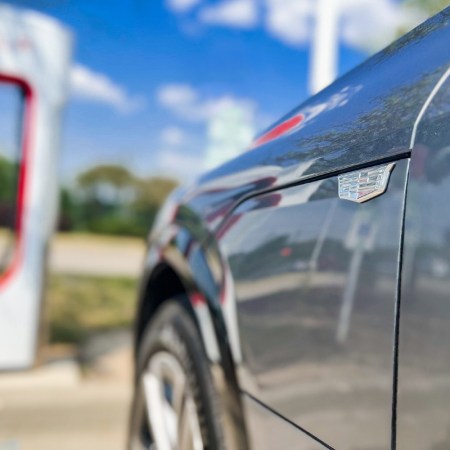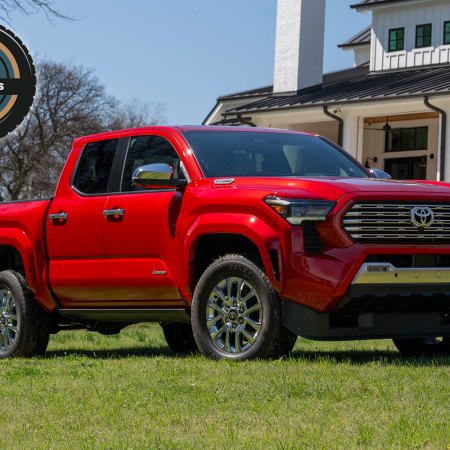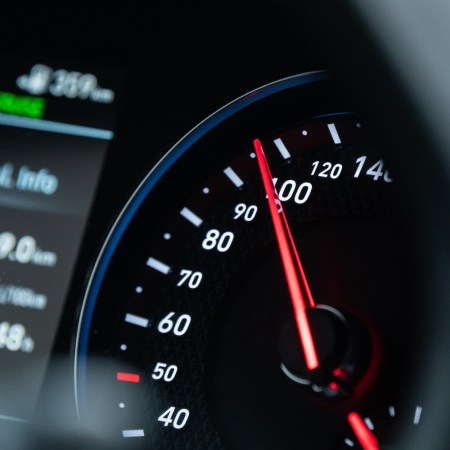Tell me, what was the last vehicle you bought?
Are you quietly cruising around town in one of the 95,200 Teslas delivered last quarter? Are you a lucky son of a gun (or unlucky, depending on your dealer) who got your hands on a new 2020 Jeep Gladiator? Are you one of the 909,330 people who bought a brand new Ford F-Series pickup in 2018, the best-selling vehicle of the year?
If it was a truck or SUV, I’ve got bad news for you: you probably don’t need it, and you probably knew that when you bought it.
Look, I know that there are a great many Americans who legitimately need trucks and SUVs for what they’re designed for. Which is, as the name infers, sport and utility. If you’re a construction worker, farmer, emergency-service worker or even just an overlanding enthusiast, then I’m certainly not talking to you. And I’m not talking to others who, in their work or recreation, require these vehicles because a smaller car can’t go where you need to go, haul what you need to haul, tow what you need to tow, etc.
But those same people who live and die by the F-150 also know a simple truth: there are thousands of people who own the same make and model, in the same “Blue Jeans” paint job (yes, that’s a real color choice), who have no business driving it. There are thousands (OK, I’ll go there, millions) of Americans who absolutely, unequivocally do not need the SUVs and trucks sitting in their driveways. And people who don’t need them should stop buying them.
It’s no secret that ginormous vehicles are having a big moment in the U.S. According to Automotive News, light-truck sales grew 7.7 percent in 2018 while cars fell 12 percent, selling record low numbers not seen since the ‘50s. The publication goes on to cite former FCA CEO Sergio Marchionne’s belief that we are experiencing “a ‘permanent shift’ toward pickups and SUVs.” As Fox News writes, this shift is thanks to “increasing choice, low gas prices and improving fuel economy.” And it’s not just playing out at the dealers, automakers are increasing production as well, with GM spending $4.2 billion to accommodate new pickups and SUVs.
The problem with all of this? We’re in the middle of a climate crisis, and huge swaths of people are buying gigantic vehicles they don’t need and acting like there is nothing wrong with that choice.
If you’re thinking this isn’t your problem, that we need to fight the undeniable fact of carbon emissions and climate change at the systemic level, not on an individual level, I’d ask you to listen to climate activist Greta Thunberg. She spoke at the Brilliant Minds conference in Stockholm in June and had this to say: “I know we need a system change rather than individual change, but you cannot have one without the other. If you look through history, all the big changes in society have been started by people at the grassroots level.”
The sum total of weaker rules, cheap gas and more four-wheeled juggernauts on the road is bad news for the planet.
What does that have to do with me buying a new Land Cruiser? It means, when you’ve decided to buy a new car, or even a used car, think about whether or not you really need all that gas-guzzling heft. If you’re mostly driving to and from work alone, and heading out of town on the weekend with just your significant other, you don’t need a seven-seat leviathan. If everyone actually bought vehicles based on their needs instead of their wants — wants which are influenced by auto ads of jacked-up SUVs and trucks speeding down dirt roads waving American flags — those year-end sales numbers would look very different.
Oh, and the thing Fox News, and other sites, forget to mention when they talk about improving fuel economy — and cheap gas! — is that the current administration is actively working to roll back fuel economy standards. In an alarming report in the New York Times last week, it came to light that those rollbacks are being supported in large part by emboldened groups of climate-change deniers. “America’s cars and trucks would emit as much as an extra 321 million to 931 million metric tons of carbon dioxide into the atmosphere between now and 2035 as a result of the weaker rules, according to an analysis by the research firm Rhodium Group,” writes the Times. I don’t have to tell you that the sum total of weaker rules, cheap gas and more four-wheeled juggernauts on the road is bad news for the planet.
The jumbo-vehicle (and carbon emissions) boom is not just an American phenomenon. The average carbon emissions of new cars in Europe also went up in 2018 … for the second year in a row. Some German politicians are calling for limiting the sales of SUVs, according to newspaper Die Welt. Politician Ingrid Remmers is quoted by Clean Energy Wire as saying it’s ridiculous that a vehicle “with a weight of [two tons] is being used to drive around people with an average weight of [170 pounds].” Couldn’t have said it better myself.
To move away from climate change for a minute, the funny thing (yes, there’s something funny in all this, I promise) is that even if you don’t consider the undeniable global problem that is climate change, the point would still stand! Most people don’t need vehicles this big. As Remmers implies, it’s absurd that they think they do.
On Halloween, people pretend to be cowboys and bounty hunters. At Comic-Con, people dress up as Indiana Jones or Captain America. Buying a superfluous SUV or truck is born of the same impulse. On a subconscious level, you probably feel a Silverado or Navigator or kitted-out Wrangler will sate some need to be stronger, bigger, better, more manly.
Look, I have daydreams about driving a Land Rover Defender. I also wouldn’t mind rolling into town in a Gladiator. But I can also differentiate the things I actually need from the things companies make me think I need, and right now, all I need is a sedan. And guess what? Sedans are cool, too! Did you know Porsche is building an electric four door that can fit your whole family and your bags?
When I wrote about not using plastic water bottles, a totally secure, not-at-all-infantile Facebook commenter replied: “I’ll drink what I want, from whatever container I want, however I want, whenever I want.” He went on to mention my “virtue signaling.” A new batch of keyboard warriors will likely repurpose that same sentiment here (i.e., “I’ll drive what I want, when I want.”). What’s funny is that that kind of comment — consumerist brainwashing in the guise of self determination, which is rampant in comment sections — is more in line with the concept of virtue signaling. Except here the virtue is one of unspoken, ugly consequences of capitalism: an addiction to buying newer, bigger, better stuff, with no regard for the ramifications (like pollution or climate change).
Do I believe that you should be able to buy any vehicle you want? Yes. Do I also believe that Americans are smart enough to realize that they’re being sold SUVs and trucks that are too expensive, too dirty and too big? That they’re smart enough to change their buying habits? That they’re self-aware enough to look beyond cheap gas and performative masculinity?
Get back to me on that one.
Whether you’re looking to get into shape, or just get out of a funk, The Charge has got you covered. Sign up for our new wellness newsletter today.
























